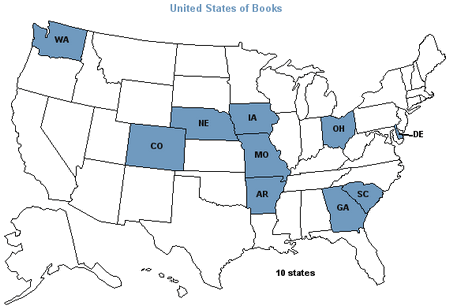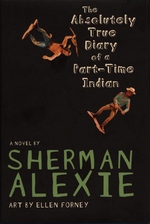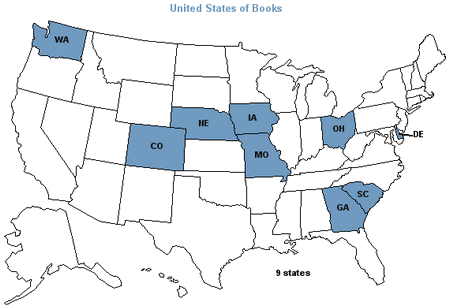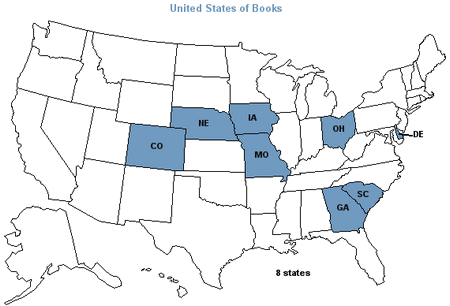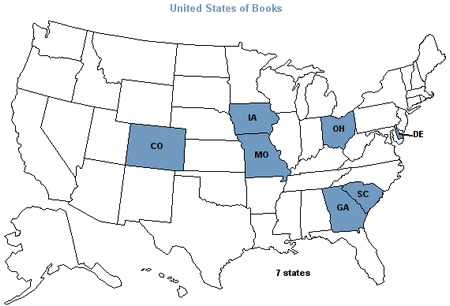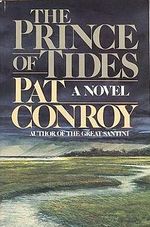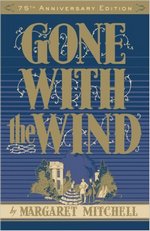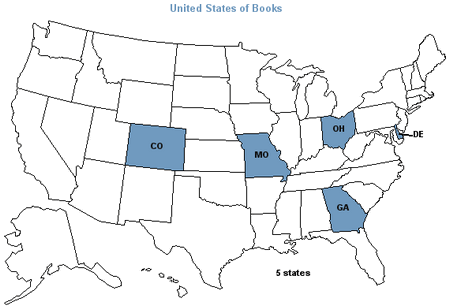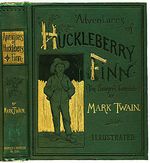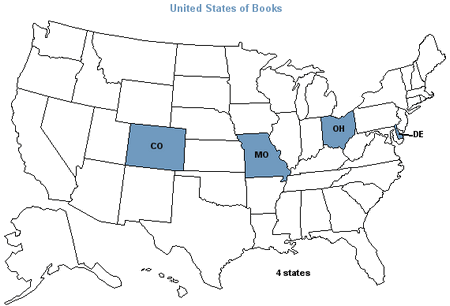by Pat Conroy
Hardcover, 567 pg.
Houghton Mifflin Company, 1986
Read: February 1 – 4, 2016

The story of the Wingos is one of humor, grotesquerie, and tragedy. Tragedy predominates.
So warns Tom Wingo before beginning to relate that story to Dr. Susan Lowenstein. Lowenstein is Tom’s sister’s therapist and needs his help to understand Savannah, who recently tried to kill herself for at least the third time. Savannah’s now institutionalized until she gets back to a place where she can handle her PTSD (my diagnosis, not Lowenstein’s), psychosis, and whatever else they diagnose her with.
As he has done before, Tom has dropped everything and rushed to New York City (from the tiny community of Colleton, South Carolina) to help his sister. The best way to do that, Lowenstein says, is to fill in the large blanks of memory that Savannah demonstrates. Then, she’ll be able to help Savannah remember and move on from whatever trauma has brought her to this stage. Tom agrees — not only has he come to help his sister, he’s also taking a break from home: he’s been unemployed for a year, he just learned his wife is having an affair and might leave him — maybe by helping his sister’s therapist help her, he might get help in the process.
Before he gets the call about his sister and finds out about his wife, Tom’s spending time with his three daughters and jokes with them:
. . .parents were put on earth for the sole purpose of making their children miserable. It’s one of God’s most important laws. Now listen to me. Your job is to make me and Mama believe that you’re doing and thinking everything we want you to. But you’re really not. You’re thinking you own thoughts and going out on secret missions. Because Mama and I are screwing you up. . . I know we’re screwing you up a little bit every day. If we knew how we were doing it, we’d stop. We wouldn’t do it ever again because we adore you. But we’re parents and we can’t help it. It’s our job to screw you up.
That’s not the last time Tom will joke about this, but he’ll spend far more time showing and telling the reader about how parents go about screwing up their kids — he, Savannah and their older brother, Luke, are proof of that (there are four exceptions to this in the novel — but I can’t help but think that with some more investigation, they’d be shown as screwed up, too).
The seeds of this parental function are planted on the night of the twin’s birth, and soon flower while the children are (at least) toddlers — and it doesn’t stop, ever. To detail it would be to give too much away, but Tom, Savannah, and Luke have horrible childhoods and the proof of that is writ large all over their adulthood. Which doesn’t mean that the book is entirely grim — their father has bouts of generosity, of letting his imagination get away from him and getting the family involved in an escapade; they have loving grandparents; they’re successful at school (in differing ways); they adore their mother (rightly or wrongly); they have adventures — they’re actually happy frequently. But then the reality of their poverty, their abusive father, their (I’ll let you fill in the blank if you read it) mother, will revisit them and things will be grim again. Early on, we’re told that something horrible happens to Luke just a couple of years before this most recent suicide attempt, their father is in jail, and that his mother has remarried (to someone Tom hates more than his father). Slowly but inexorably, we march toward those ends. Alternating with the tales of their past, we see Tom in New York, trying to help and understand his sister, as well as the growing friendship between Tom and Lowenstein.
At the end of the day, Lowenstein’s son is the only character that I liked (and maybe Tom’s daughters — but we spend less than ten pages with them, so it’s hard to say). Which doesn’t say a whole lot for the rest of this motley collection of scofflaws, narcissists, manipulators, bullies and gulls. Thankfully, you don’t have to like all the characters to appreciate a well-written, well-structured novel. Which this largely is.
I’m not entirely convinced it’s as good as it thinks it is, however (it, and most readers, it appears). It frequently seems over-written — too much squeezed into a sentence; sentences filled with sesquipedalian words (after paragraphs without any); the humor seems forced sometimes; the dialogue is frequently stilted. The flashback segments appear to be what Tom’s relating to Lowenstein — but I have to wonder if they’re more detailed for the reader than they are for Lowenstein. She complains that Tom’s not forthcoming about the mother (unless maybe his version conflicts with what Savannah has been telling her), because I think I get a pretty clear picture of her from that.
There are some reveals promised early that Conroy doesn’t deliver until towards the end — and he mostly delivers well. However, one of the big reveals (at least Conroy played it as one), was telegraphed so clearly hundreds of pages before I didn’t think it even needed to be mentioned — it could just be assumed. Like he didn’t need to mention that the football coach from South Carolina had an accent. Telegraphing it the way he did made it seem like an authorial or editorial failure. There was one reveal that was promised only a chapter or so before we got it — I’m glad I didn’t have to wait long for it, because of all the things he teased, this was the most vital (and most disturbing) — setting up Savannah’s first suicide attempt and the rest of her life (it seems).
I’m sure I’m in the minority here, but I think the book tries to do too much — especially by the time it gets to the end, where Tom is beginning to tell us the dark thing it’s been hinting at about Luke, the set-up for what happens to Luke was just too much. Conroy covers race, regionalism, psychiatry, feminism, theories of masculinity, how sports can be noble, spousal/parental abuse, marital fidelity, marital love, marital betrayal, sexual assault, school integration post Brown vs. Board of Ed, Vietnam, property rights, the drug war, quixotic faceoffs against the federal government . . . and other things I’m forgetting. It’s just too much — especially to befall one family (even if three generations are in view).
So as part of this United States of Books series, one thing I want to look at is why the book was chosen, what did the novel teach me about the state, why did EW pick it as “the one work of fiction that best defines” South Carolina? It’s definitely not because it paints the residents in the kindest light — the constant contrast between small-town SC versus a fairly idealized New York City (or at least affluent NYC) doesn’t do the state any favors. There’s a sense of a mix of pride and shame about the people, the history, and legacy of the state. The sharp class distinction — not just racial — drove so much of the characters actions and desires that it seems to be part of their DNA (although it can be overcome with the right strategy and dedication). It’s not the best part of the country to live in, the book seems to say, but those who embrace the life, the state, develop a great love that transcends all sorts of regional, intellectual or philosophical chauvinism. Also, I should’ve realized, but didn’t, that there was more to SC coastal industry than tourism, never occurred to me that there might be shrimpers, lobster trappers, etc.
“There’s a difference between life and art, Savannah,” I said as we moved out into the Charleston Harbor.
“You’re wrong,” she said. “You’ve always been wrong about that.”
I knew very little about this book going in. I remembered when I was in college shortly after the movie came out that everyone talked about Conroy as if he were a genius. I knew that the movie (and therefore, probably the book) involved some rough-and-tumble guy and a classy psychologist in therapy (and in bed, based on the movie poster). I’ve seen Conroy interviewed and in documentaries, I knew he considered himself a “Southern Writer” in the tradition of Faulkner, Harper Lee, Flannery O’Connor and James Dickey (his influence is clearly seen). But beyond that, I didn’t know what to expect. I think maybe more than this. I have to give this a mixed review — there’s a lot to admire here, scope, character, the way he told a multi-layered story about very familiar subjects in a way that (mostly) didn’t seem to tired or cliché. But, oh, I spent a lot of time hating this book. There were at least two times, maybe three, that I almost walked away from this — and I probably would have if it wasn’t part of this series. I’m not entirely sure that I’m glad I finished.
I’d love to read what you all have to say about this — fill up this comment section! Convince me that I was wrong about this work of genius (or, that I was right to have misgivings).
—–
Mixed Rating:
Did I like it?

Did I think it was well-done? (lost a 1/2 star in the last 50 pages or so)

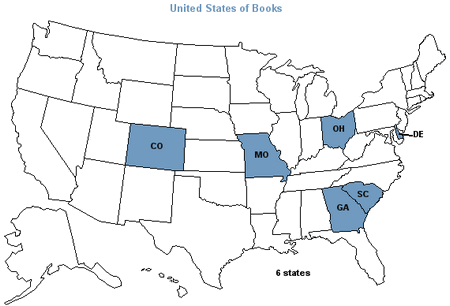
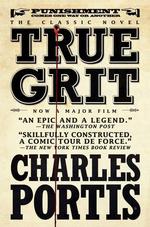 True Grit
True Grit
